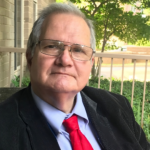
Today is the Memorial of the Queenship of the Blessed Virgin Mary. The last of the Glorious Mysteries that Catholics meditate upon when praying the rosary is the “Crowning of Mary as Queen of Heaven and Earth.”
We’re Americans! We’re a republic! What does “queenship” have to say to me?
It’s almost two years since Elizabeth II died. Last January, Margrethe II abdicated the Danish throne. Both were cultural symbols of national unity, inspiring patriotic feelings for their countries and traditions, waving nicely while cutting ribbons. But both were also political figureheads, delivering “speeches from the throne” written by their prime ministers and (generally) signing whatever was put in front of them.
Is that Mary? No.
If we’re looking for an analogue to what Mary’s queenship entails, we should look at Jesus’ kingship.
The Church also celebrates every year the Solemnity of Christ the King of the Universe. Christ’s kingship was a matter of controversy through much of his public ministry. Whereas Jesus kept pointing his apostles toward service, they kept asking if he was now going to restore the rule to Israel. Whereas Jesus speaks of taking the lowest seat, James and John want to know if they can get box seats on Judgment Day. Jesus says his kingdom is not of this world, but is one of truth and life, which earns him Pilate’s “what is truth?” as he sends him to his death.
Jesus’ kingship is unlike human expectations. Perhaps because the hardest person over whom to reign is . . . yourself.
Plato said, “The first and best victory is to conquer self.” That’s not the way of the world today. When I searched for that quote, Google in fact gave me far more that talked about not being too hard on yourself.
But, as St. Maximilian Kolbe, whose feast we celebrated August 14, remarked, the best math equation is W = w—i.e., God’s Will equals my will. That’s hard. We pray, “Thy will be done” when we often mean, “My will be done.” Yes, our will is what makes us kings. As Karol Wojtyła noted, it is an inviolate sanctuary: nobody else (not even God) can will for me. I am alteri incommunicabilis.
What makes us a king is not when we lord it over somebody else, but when we rule ourselves, when our internal kingdom is one of “justice, love, and peace” (Preface for Christ the King). It’s why, in Sign of Contradiction, Wojtyła said that man expresses his royal dignity most fully when he kneels to say, “Bless me, for I have sinned.”
Vatican II spoke of three munera of every baptized person: he is made a priest, a prophet, and a king. His priesthood consists in worship of God, which involves the sacrifice of his self-will. His prophetic mission is to bear witness to the truth in a world lit by other lights. And his royal dignity is found in a rule subordinate to truth and goodness—i.e., subject to God, who is Truth and the Supreme Good.
It took the apostles a long time to figure that out. But it’s also consistent with the best of the Old Testament. The kings of Israel were unique. They could not pretend, as Pharaoh did, to divinity. In fact, they contrasted their contemporaries not in that they were supposed to be God’s representatives, but that their representation depended on their fidelity to God’s word (including the Ten Commandments). They could not “make” their will God’s. That’s why, although every king of Israel failed in some way, those who were lauded were those who recognized they were supposed to represent God, not themselves. David, though he did evil things, could beg, “Have mercy on me, O Lord, in your great mercy” (Ps. 51). Solomon could ask, “Give me wisdom and knowledge, that I may lead this people . . . of yours” (2 Chron 1:10, emphasis added). Kingship was not power to rule, but the power to submit to God’s rule and recognize that in doing so, we are only then truly free.
Mary “got” that. She had her priorities right. She could be queen of heaven and earth because she could say, “I am the handmaid of the Lord.” It wasn’t just a blind faith, either. Nor even just faith. It was “science,” too. Mary knew about the birds and the bees and asked, “How can this be since I do not know man?” At the same time, she doesn’t subject God to the criteria of her measure: “The Almighty has done great things for me, and holy is his name!” That’s the faith that moves mountains (Mark 11:23).
In that sense, Mary is very much the model for all Christian disciples because she most perfectly embodied what it meant to do God’s will. And it’s no doubt why her son shared her with his disciples as “your mother.”
. . . and, now, your queen.
Since we have been rendered by baptism a “royal priesthood” (1 Pet. 2:9), perhaps we, too, should start acting according to our nobility? After all, noblesse oblige!



